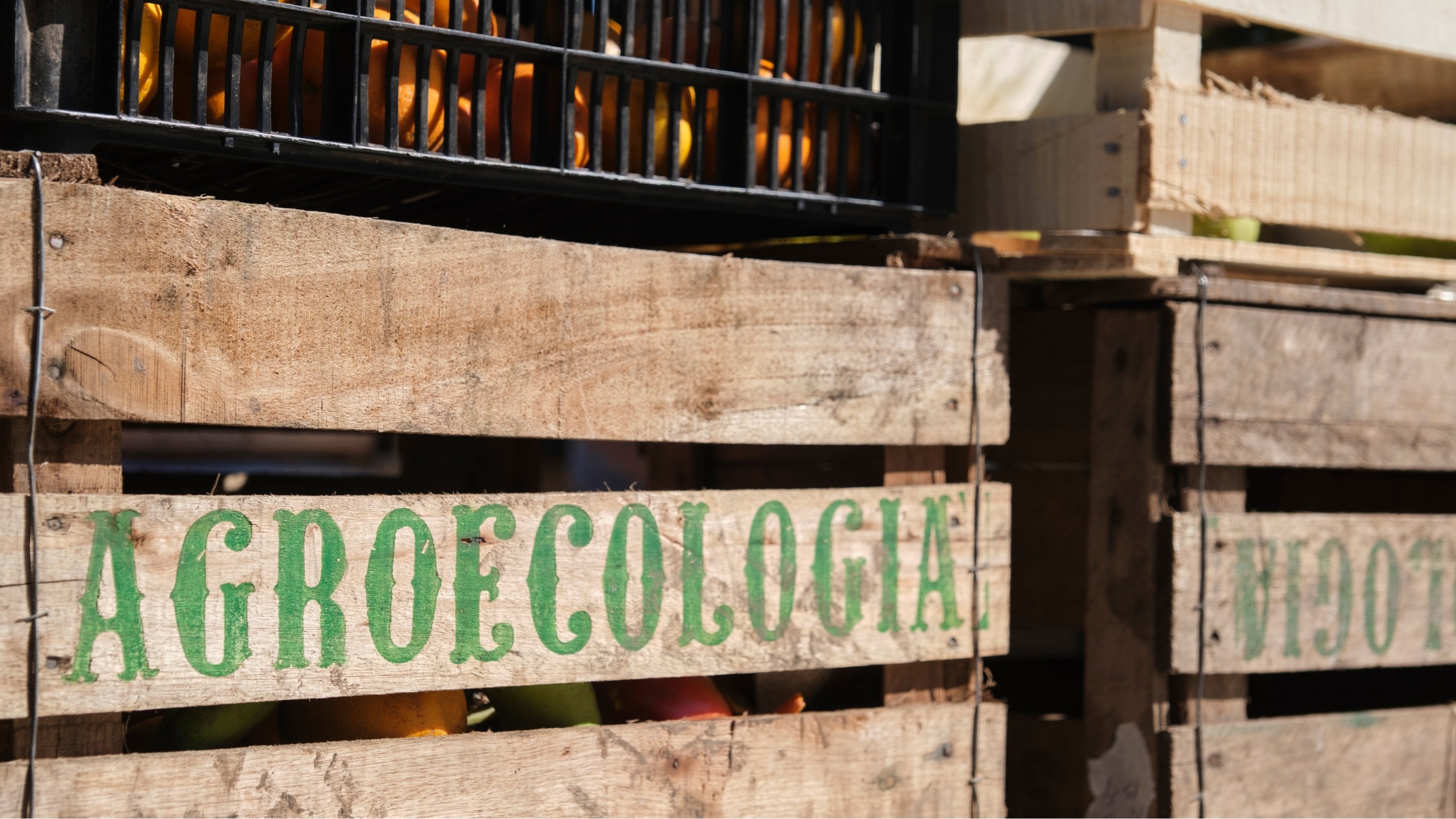Africa is facing growing food insecurity, exacerbated by several factors including rapid population growth, climate change, soil depletion, dependency on imports, and limited access to appropriate agricultural technologies. According to a 2021 FAO report, over 280 million people in Africa are estimated to suffer from undernourishment. In this context, agroecology presents a sustainable solution to improve, and even strengthen, the continent's food sovereignty. The combination of traditional knowledge with scientific innovations could improve soil productivity while preserving the environment. However, for agroecology to effectively contribute to achieving food security, African universities must play a central role in training, research, and the implementation of solutions tailored to local realities. This article will explore the levers of action that allow academic institutions to support this agroecological transition while ensuring sufficient and sustainable food production for African populations.
Training a New Generation of Competent Agroecologists and Agronomists
Food security first requires the establishment of a skilled agricultural workforce capable of implementing agroecological techniques suited to African realities. Currently, many agronomy training programs continue to promote conventional farming models, which are often ill-suited to local contexts.
For agroecology to be rapidly adopted and considered a driver of food security, African universities need to integrate it into academic curricula and programs, offering specialized training from undergraduate to doctoral levels. Additionally, universities should prioritize practical agroecology courses that include field internships, case studies, and exchanges with farmers who are using these methods.
Integrating modules that combine multiple disciplines such as environmental studies, agronomy, economics, and sociology would provide future professionals with a comprehensive understanding of agricultural challenges. In institutions like the University of Stellenbosch in South Africa and Cheikh Anta Diop University in Senegal, agroecology integration is already underway. However, it remains evident that for these initiatives to have a significant impact, they must be scaled across the continent.
The case of Benin illustrates this dynamic well. All stakeholders—whether producers, NGOs, researchers, or institutions—are working to develop agroecology while ensuring its relevance to local realities. Reforms are being made in technical education and agricultural vocational training to integrate them into academic curricula, with the ultimate goal of training farmers who will be able to not only address environmental and food security challenges but also ensure the preservation of the country's food and energy autonomy.
University Research for Resilient and Productive Agriculture
Universities are not only places of training but also research centers that play a key role in identifying and implementing agroecological solutions tailored to African contexts. Today, dominant agricultural models in Africa are based on approaches inherited from the Green Revolution, which are often ill-suited to local conditions. To make agriculture more productive and resilient to climate change, it is essential that university research focuses on improving agroecological farming techniques such as agroforestry, integrated soil and water management, and the use of organic fertilizers.
Identifying and promoting local seed varieties resistant to drought is also a key lever to reduce dependence on imported seeds and improve crop resilience to climate fluctuations. Moreover, developing innovative farming systems that combine modern technologies with traditional knowledge can boost productivity while minimizing environmental impact.
The International Crops Research Institute for the Semi-Arid Tropics (ICRISAT) is a prime example of research applied to food security in Africa. In 2021, it received the African Food Prize for its major contributions to improving food security in 13 Sub-Saharan African countries. Its work has led to the development of drought-resistant crop varieties and better soil management, thus contributing to the resilience of smallholder farmers against climate challenges. Institutes like ICRISAT are already working on these issues, but their impact remains limited unless local universities adopt these research findings and integrate them into their training programs.
The importance of agriculture in the African economy is undeniable, although its contribution varies by country. In 2018, the World Bank estimated that agriculture represented, on average, 15.6% of GDP in Sub-Saharan Africa and accounted for 54% of jobs, although these figures have been declining over the past 20 years. In comparison, in Latin America and the Caribbean, agriculture represents 4.6% of GDP and 14% of jobs.
After the severe droughts of the 1970s and 1980s in the Sahel, West African agriculture was long sidelined before becoming a priority again in the early 2000s. However, its development is still hindered by numerous challenges, including soil degradation, land availability, and climate change. These constraints make it essential to explore new agricultural approaches, such as agroecology, particularly in West Africa, the continent's primary agricultural and livestock production region.
Universities and Farmers: A Key Partnership for Sustainable Food Security
One of the major challenges of the agroecological transition is access to information and innovations for farmers. The majority of African producers are smallholders, often isolated from research and innovation networks. Therefore, universities have a crucial role to play in spreading agroecological knowledge and practices to field actors.
To ensure effective knowledge transfer, universities can organize ongoing training for farmers, in partnership with farmer organizations and NGOs, to popularize agroecological techniques. Establishing experimental university farms that serve as open-air laboratories, where students, researchers, and farmers collaborate to test and adapt innovations, is another key strategy.
The development of digital platforms and dissemination tools, such as mobile applications or educational videos, would also make knowledge accessible to rural communities. By strengthening these links between academia and producers, African universities can play a catalytic role in spreading agroecological practices and ensuring their large-scale adoption.
Conclusion
To address Africa's food challenges, agroecology is a suitable response through the development of productive, environmentally respectful, and climate-resilient agriculture. However, its implementation requires training specialists, researching adapted solutions, and transmitting this knowledge to farmers. This is where universities must play a central role. Ensuring food security on the continent cannot be achieved without the joint action of governments and academic institutions, which are increasingly investing in agroecological research and strengthening agroecology training while fostering partnerships between researchers and farmers. Africa, with its growing agricultural production, could fully benefit from a transition to agroecology if appropriate policies are implemented. The future of African agriculture depends on an inclusive approach, where science and local knowledge combine to build sustainable and resilient food systems.
Bibliography and References
-
Vanessa FORSANS. (2022). Les enjeux de l'enseignement de l'agroécologie au Bénin.
-
Philippe Roudié et Djiby Dia. (2022). Une troisième voie pour l’agriculture ouest-africaine ? Le cas de l’agroécologie au Sénégal.
-
DAPSA (Direction de l’Analyse, de la prévision et des Statistiques agricoles). (2024). Pratique de l’agroécologie au Sénégal : enjeux et défis


